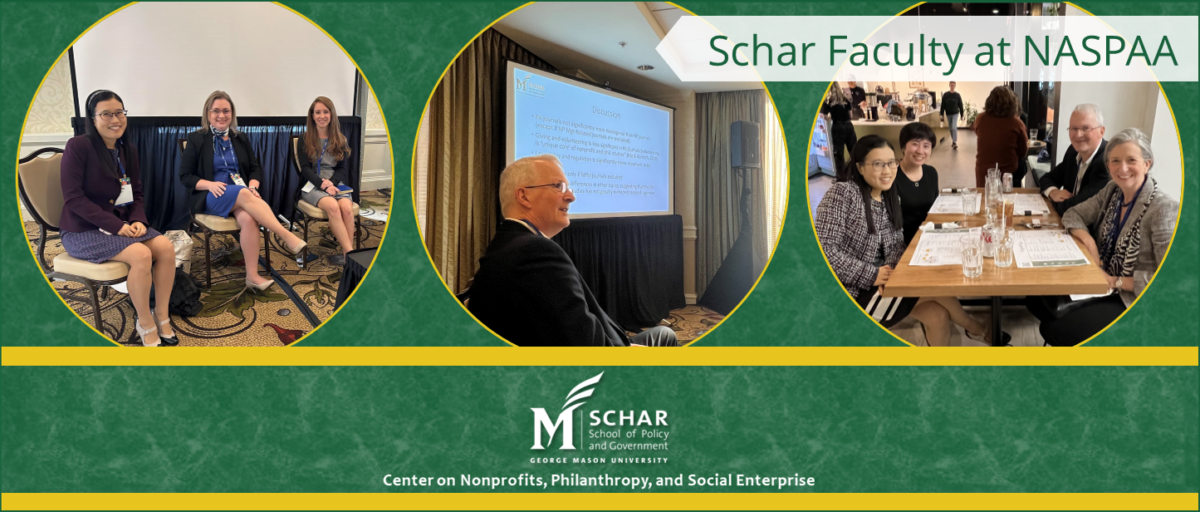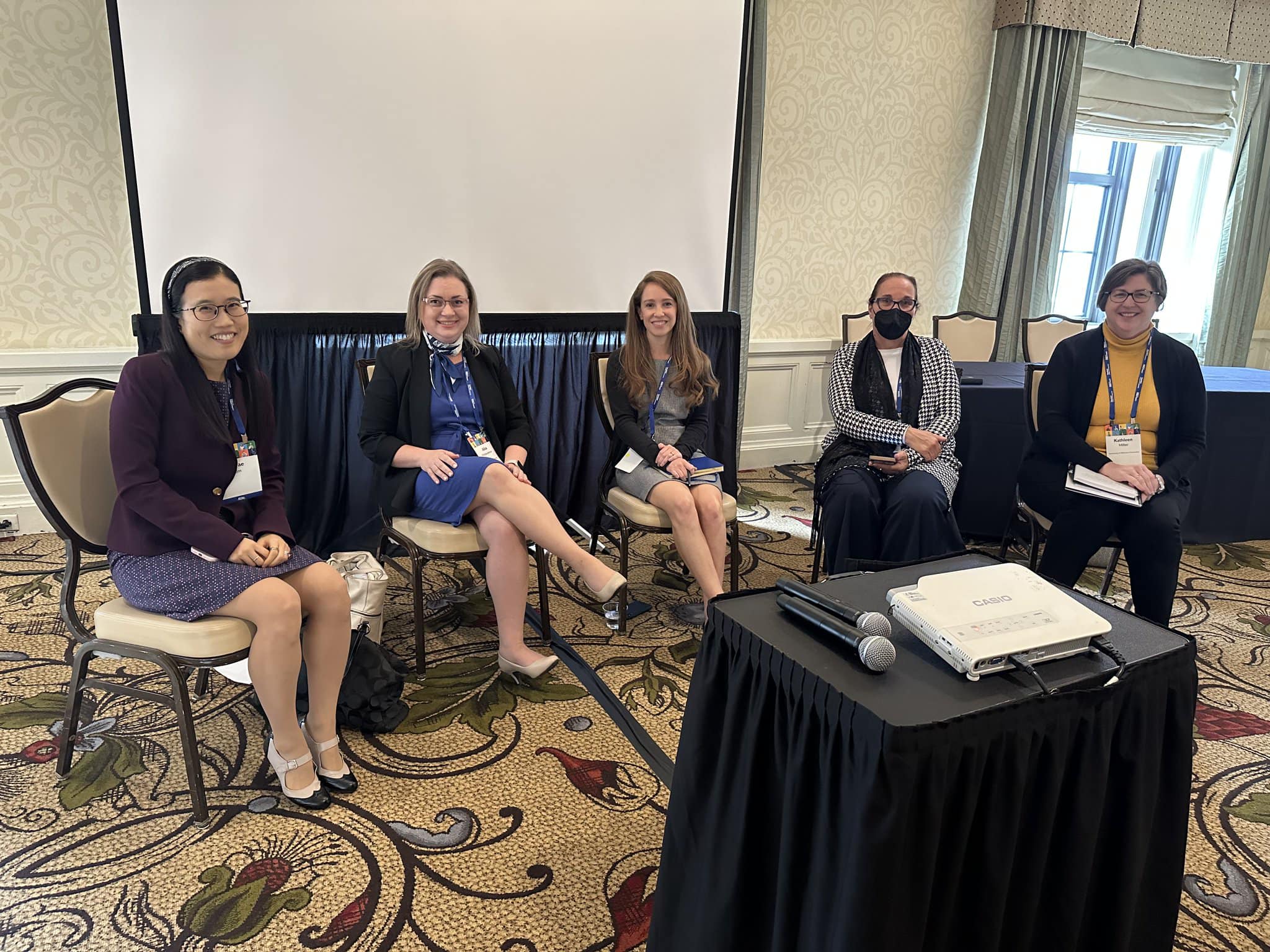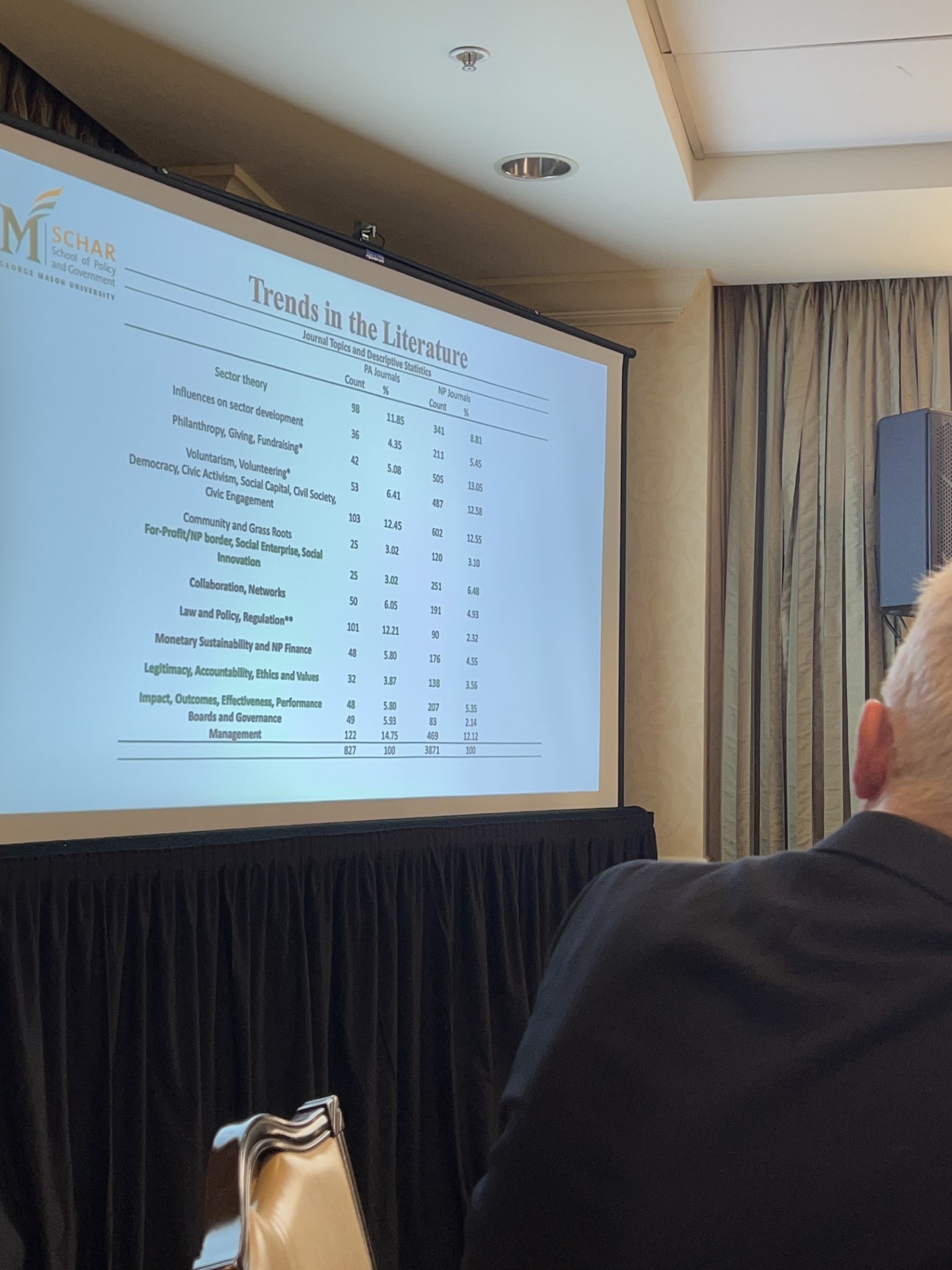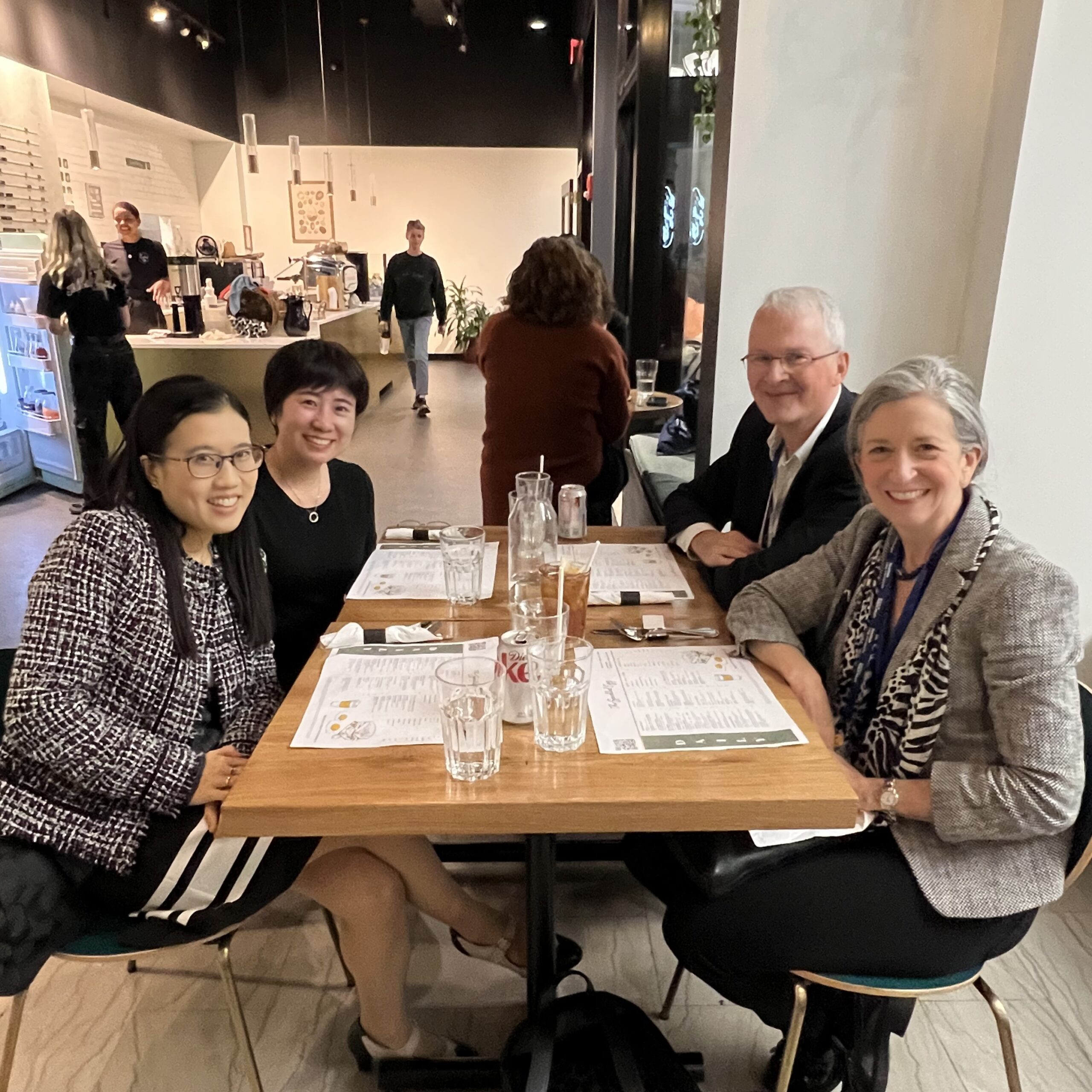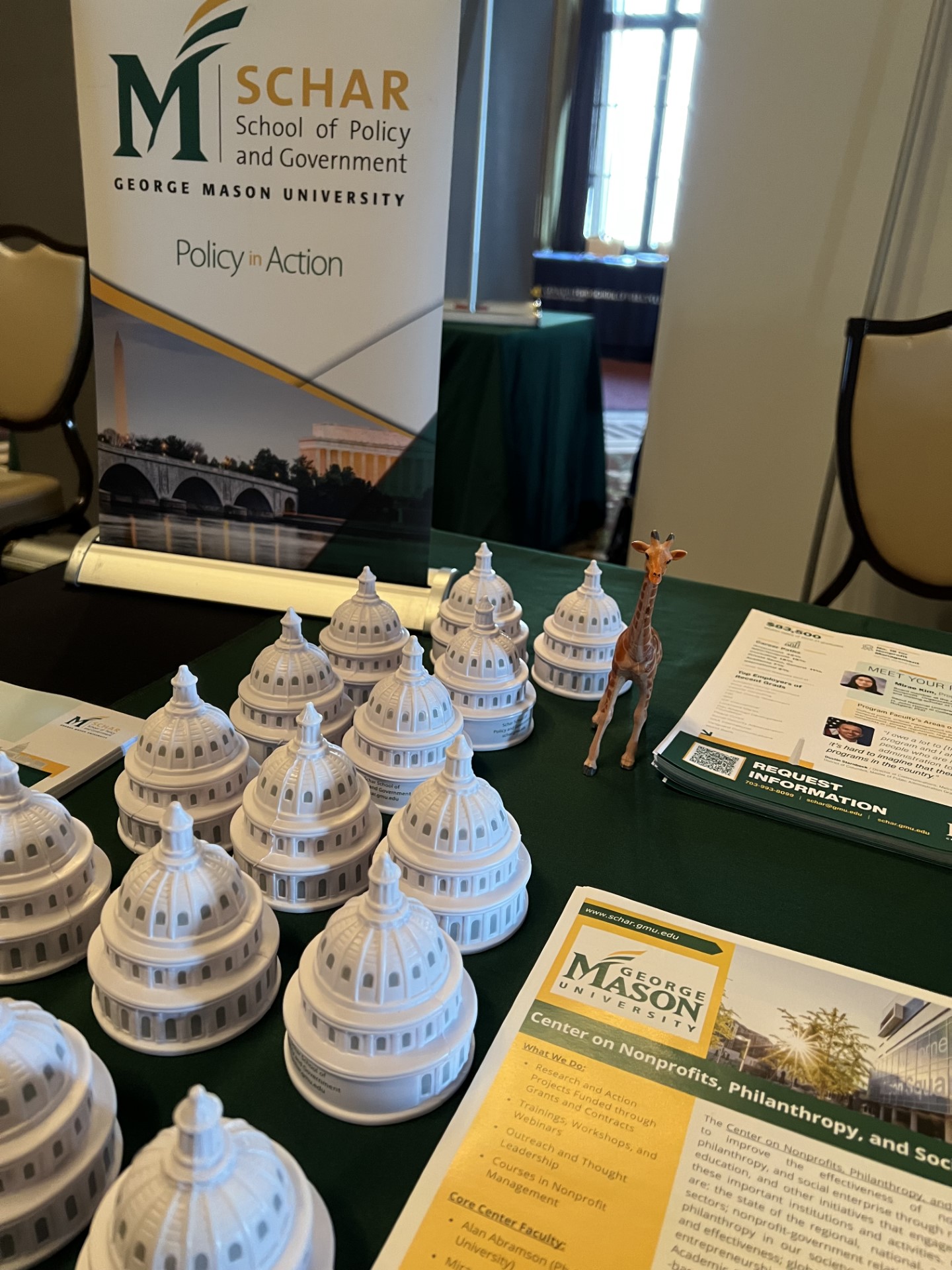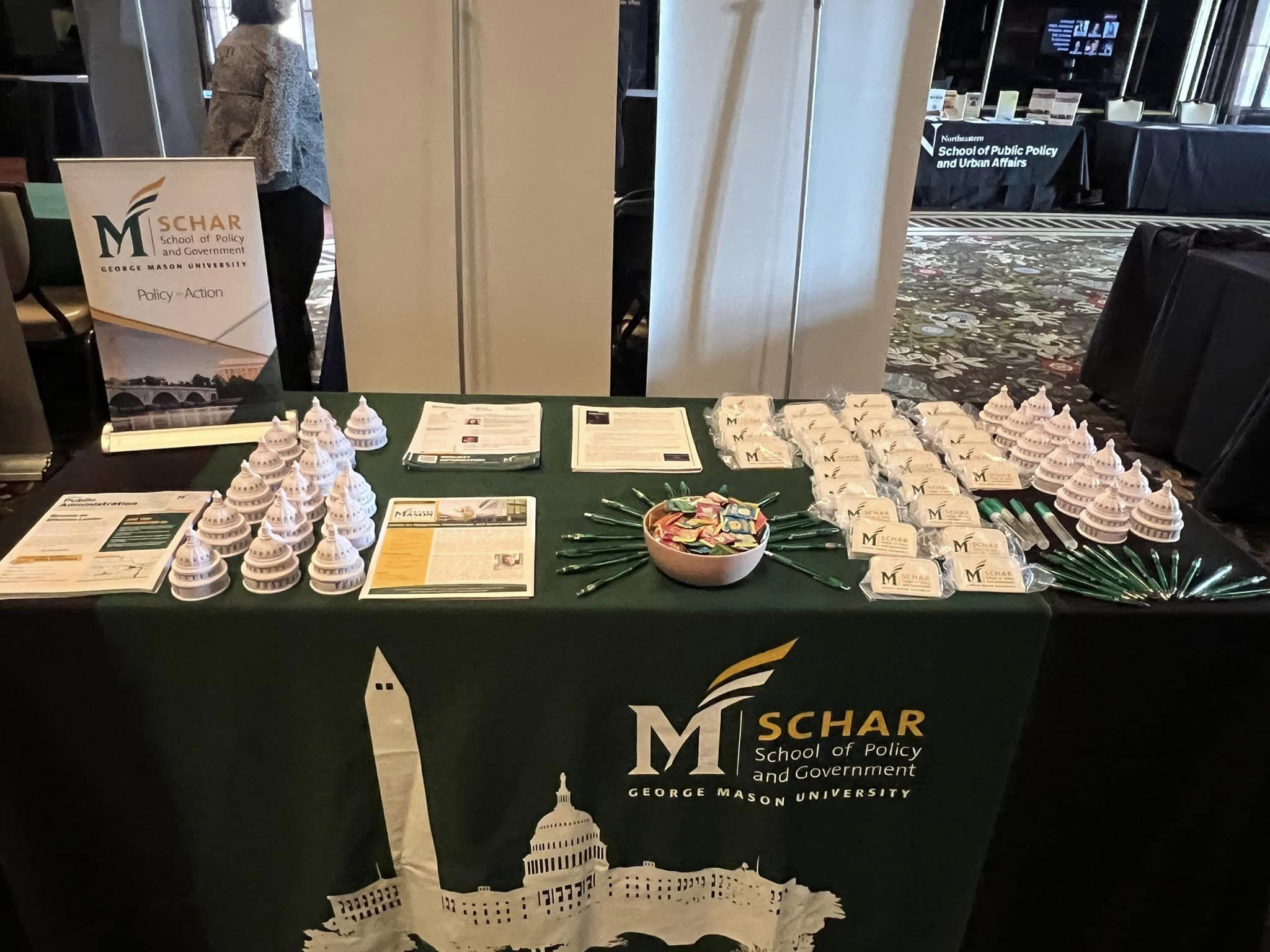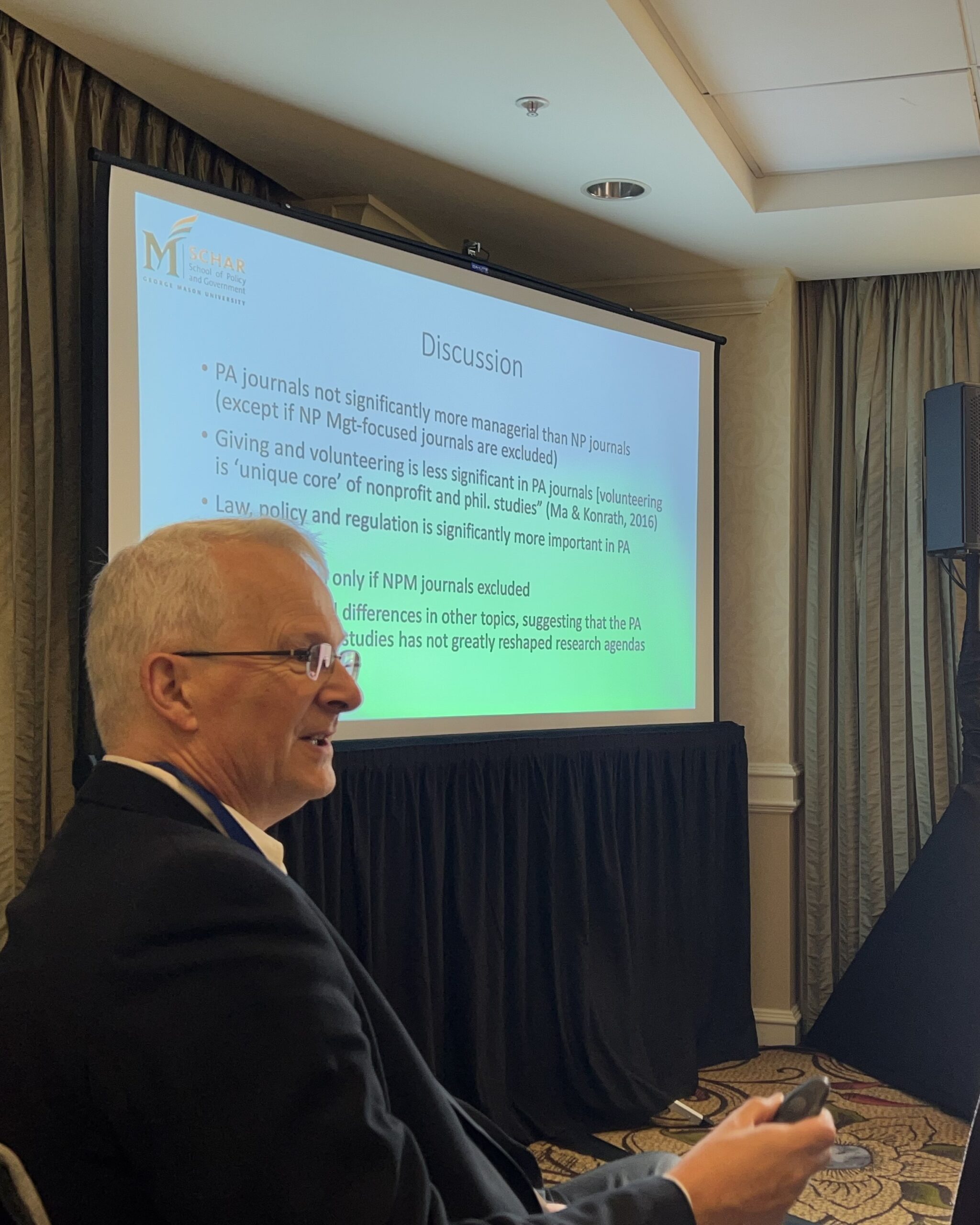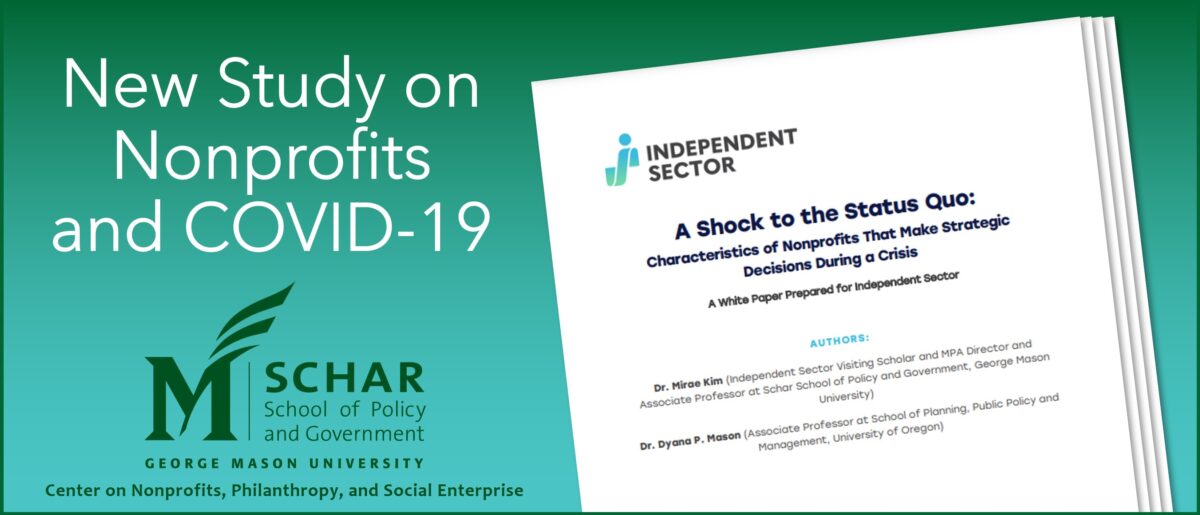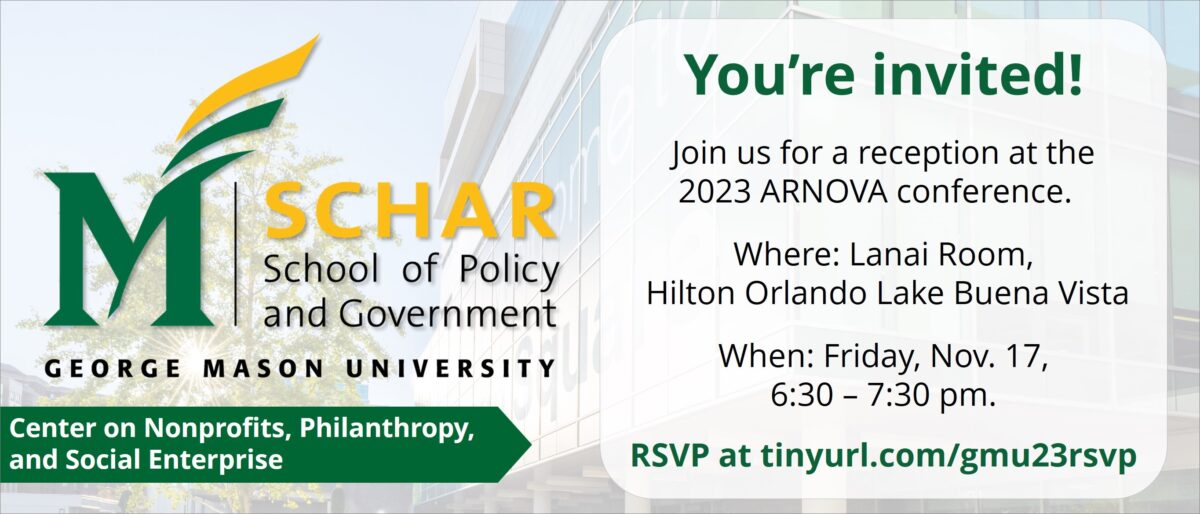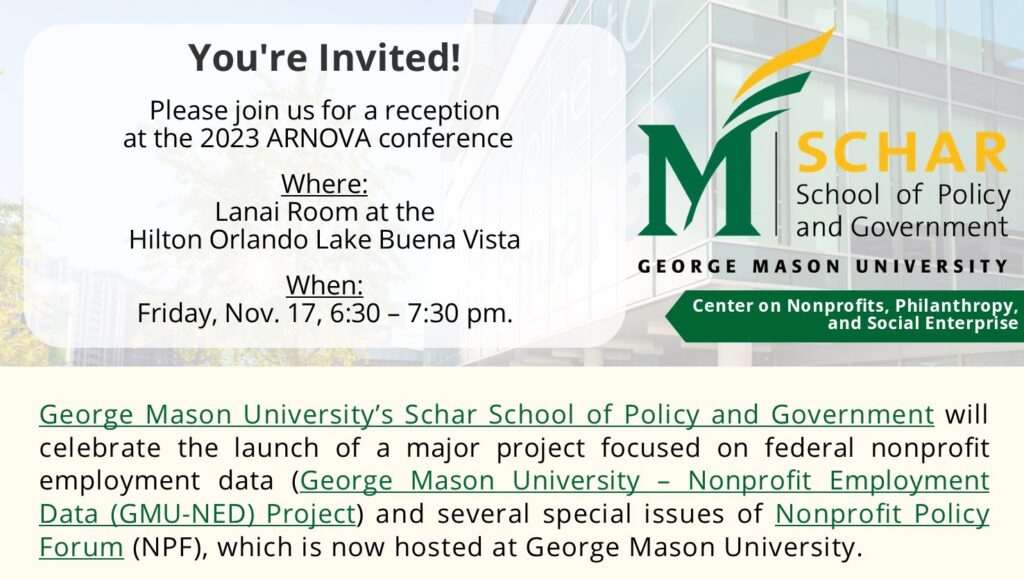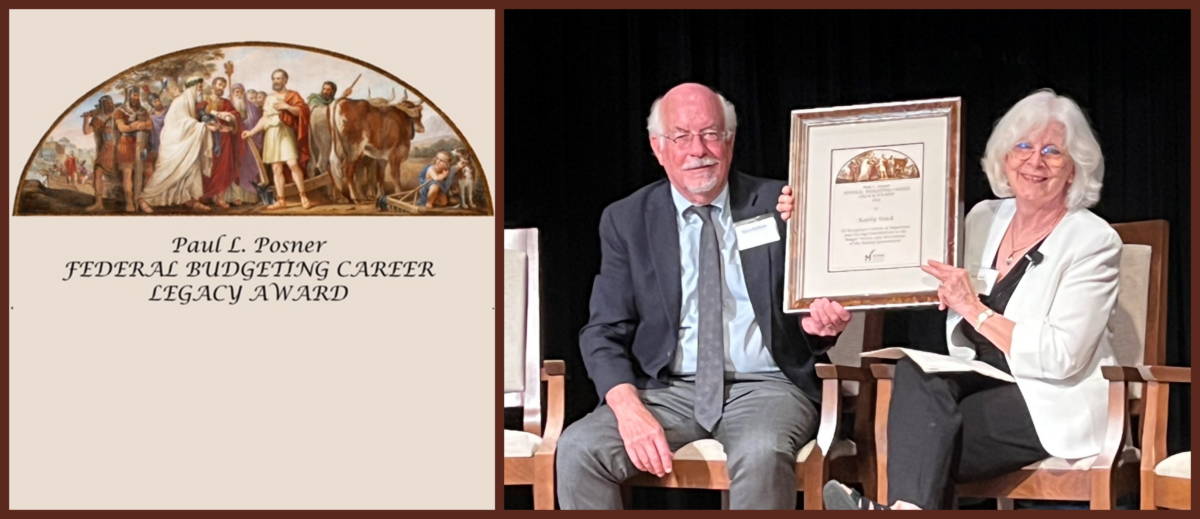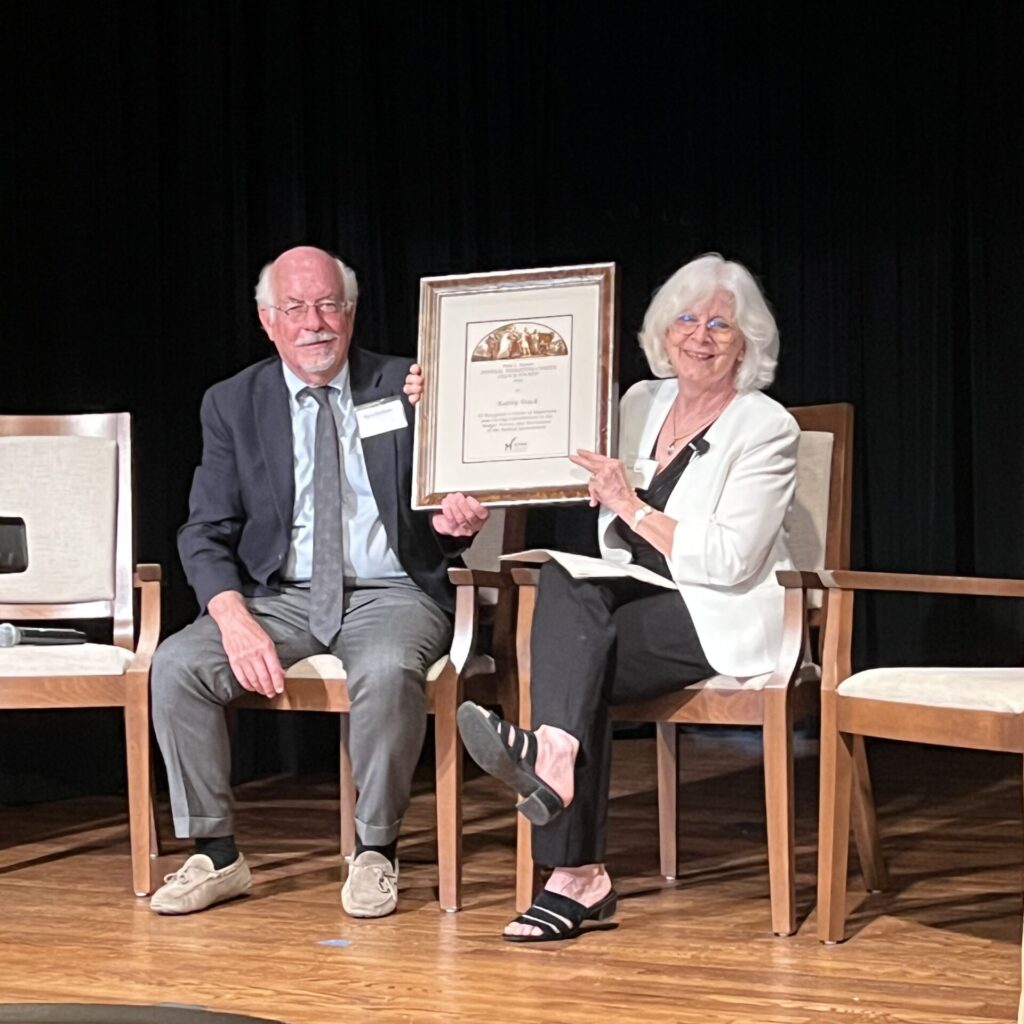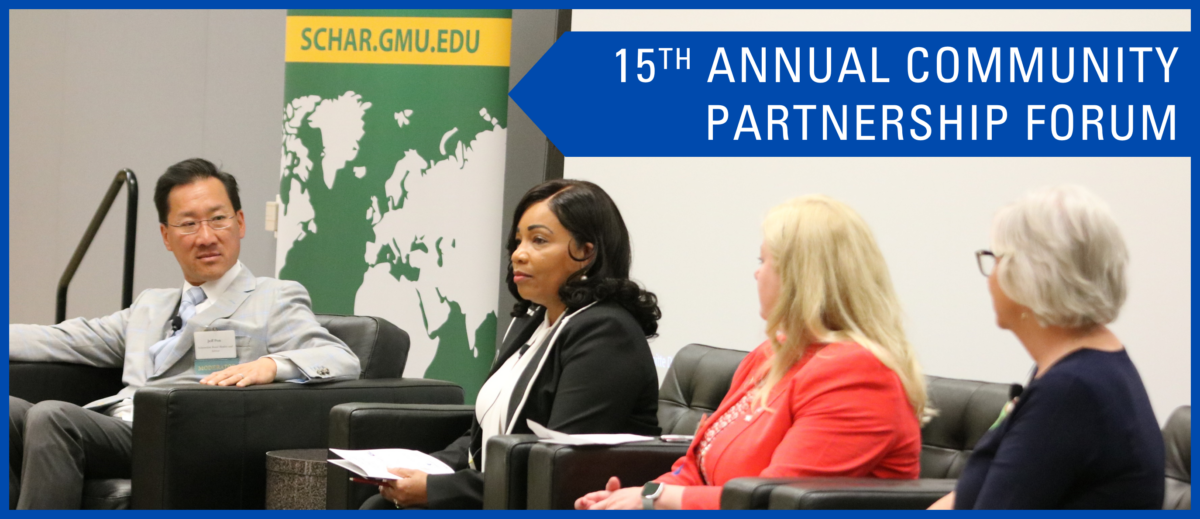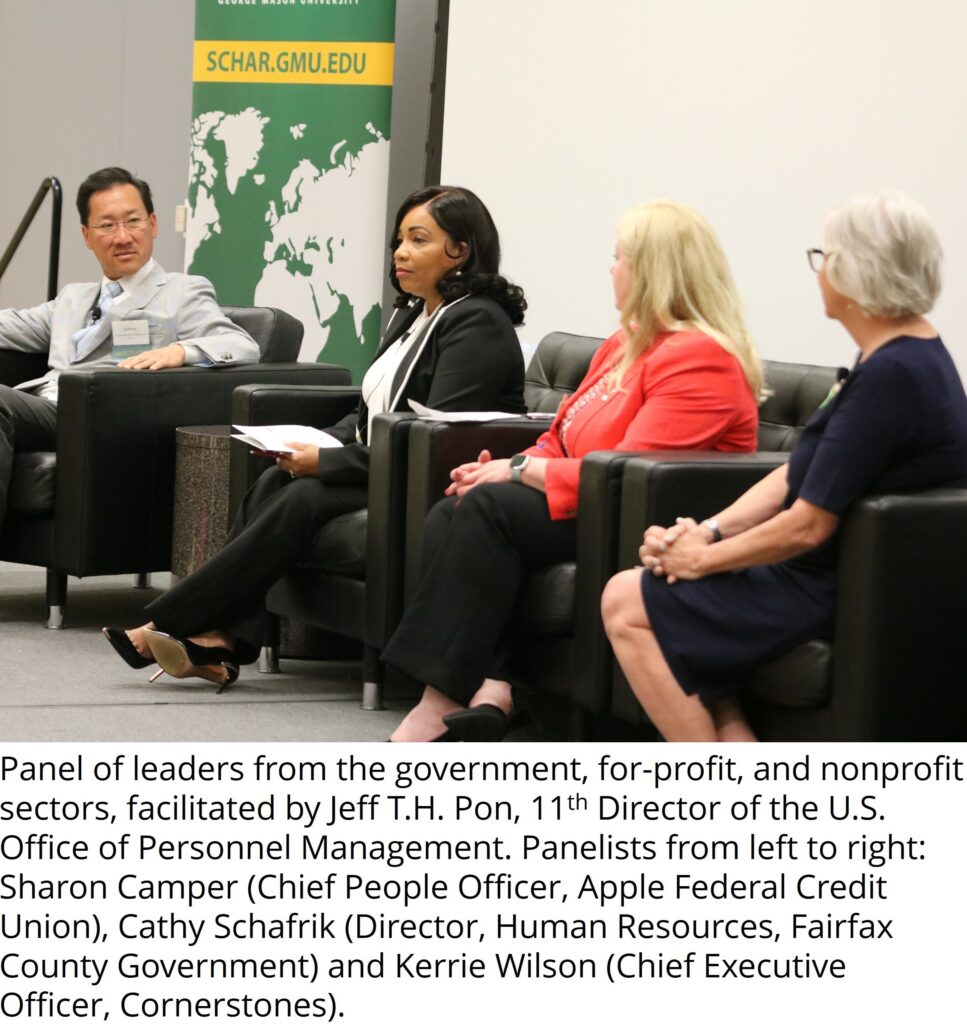Two George Mason faculty affiliated with the Center on Nonprofits, Philanthropy, and Social Enterprise, Prof. Stefan Toepler and Prof. Mirae Kim, participated in the 2023 Network of Schools of Public Policy, Affairs, and Administration (NASPAA) conference. The theme of the conference was “Impact, Growth, and Value: Conveying the Importance of Public Service Education.” Toepler and Kim drew from their expertise in nonprofit management education as they convened and participated in panels on the topic.
Toepler and Kim participated in a session titled, “Nonprofit Management at the Core of Public Service Education.” In it, they explored how MPA programs have been implementing and expanding nonprofit education as a fundamental part of public service education. The panel discussed research trends in the field and examined the learning outcomes of experimental philanthropy courses and the results of a survey of MPA Programs on trends in incorporating nonprofit content in core curricula. Kim convened the session, and both Kim and Toepler participated in the discussion as panelists.
Kim also participated as a panelist in the session titled, “Nonprofit Management Curriculum: Blending Academic Research with Practical Skills.” Many Public Affairs schools and departments house programs that serve both undergraduate and graduate students in public administration and public policy. Our goals are to serve students at all levels, in a reality of limited resources, high competition among programs, and a future demand for public servants. One way for Nonprofit Management classes to prepare students for work in the nonprofit sector is to design curriculums that emphasize both academic research and practical skills. This panel brought together representatives from universities with such programs to discuss their experiences, processes, and successes.

